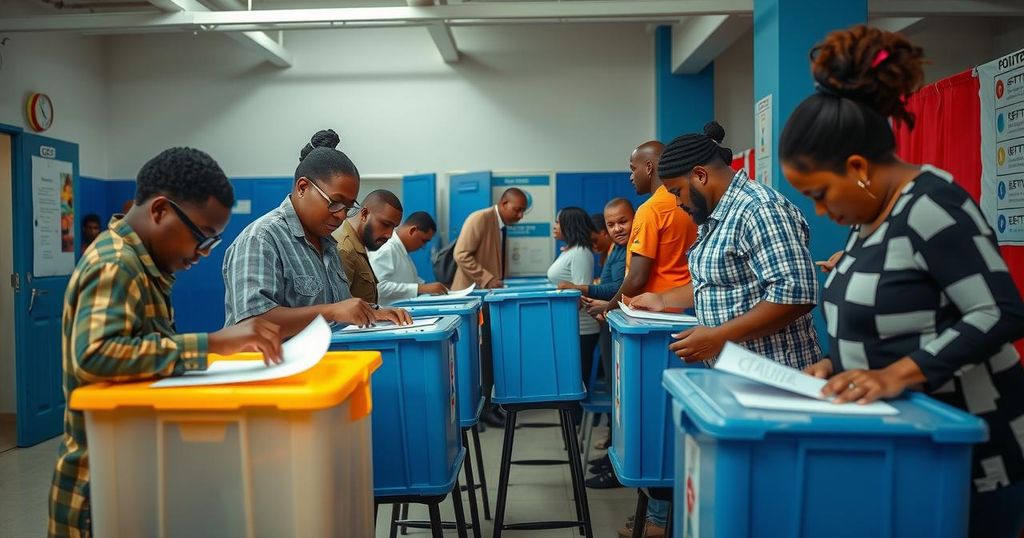Mauritius Holds Election Amidst Scandal and Calls for Electoral Integrity

Mauritius held a parliamentary election on Sunday, facing concerns about fraud amid a phone-tapping scandal affecting politicians and journalists. With the election occurring after a significant agreement on the Chagos Islands, Prime Minister Pravind Jugnauth’s government faces challenges from the opposition. The election is crucial for restoring public trust in governance and addressing economic issues.
On Sunday, Mauritius held a parliamentary election under heightened scrutiny due to a phone-tapping scandal affecting the political landscape. With police stationed at polling stations, concerns of potential fraud loomed over the election as opposition leaders urged vigilance among voters. Prime Minister Pravind Jugnauth’s government faced a challenge following the leak of secretly recorded conversations involving prominent politicians and journalists, raising questions about the state of democracy and civil liberties in the country. Despite the controversy, the election followed a significant moment in Mauritian history, where the United Kingdom ceded sovereignty of the Chagos Islands following a protracted dispute. The electoral contest is primarily between Jugnauth’s Militant Socialist Movement and the Alliance of Change, led by former Prime Minister Navin Ramgoolam. Both parties promised to address economic issues, including poverty and the rising cost of living, while maintaining a firm stance on electoral integrity. Election Commissioner Irfan Rahman reassured citizens that measures were in place to ensure a smooth voting process. With just over one million registered voters and 891 candidates contesting for 62 seats, the election is a vital moment for the nation’s governance. Observers noted that while Mauritius has experienced stability and growth since independence, concerns about corruption and governance have surfaced, indicating a need for economic diversification and restoration of institutional checks and balances. The political environment in Mauritius, characterized by a longstanding dominance of a few influential families, faces challenges from new alliances advocating for transparency and against nepotism. This election proves crucial amidst an atmosphere of skepticism toward established leadership and a potential shift in public sentiment regarding governance and accountability in the face of unfolding scandals.
Mauritius has demonstrated remarkable stability since its independence from Britain in 1968, evolving towards a robust economy largely supported by tourism, financial services, and manufacturing. However, recent developments such as a phone-tapping scandal involving politicians and journalists have sparked concerns over democratic practices and civil liberties. The political landscape is particularly charged with elections that follow a historic agreement regarding the Chagos Islands, reflecting ongoing colonial legacies and national identity. As the country prepares for its twelfth election, issues of electoral integrity, corruption, and governance continue to command public attention, challenging the long-term stability that Mauritius has enjoyed. The implications of these factors are crucial as the citizens of Mauritius engage in the electoral process, determining the future leadership and direction of the nation.
The parliamentary election in Mauritius is more than a contest for political power; it represents a significant juncture in the nation’s governance and societal values. Amidst allegations of corruption and the erosion of democratic norms, voters are prompted to demand accountability from their leaders. The unfolding political narrative illustrates the fragility of the democratic process, highlighting the importance of transparent governance as Mauritius navigates both historical grievances and contemporary challenges.
Original Source: www.bryantimes.com






